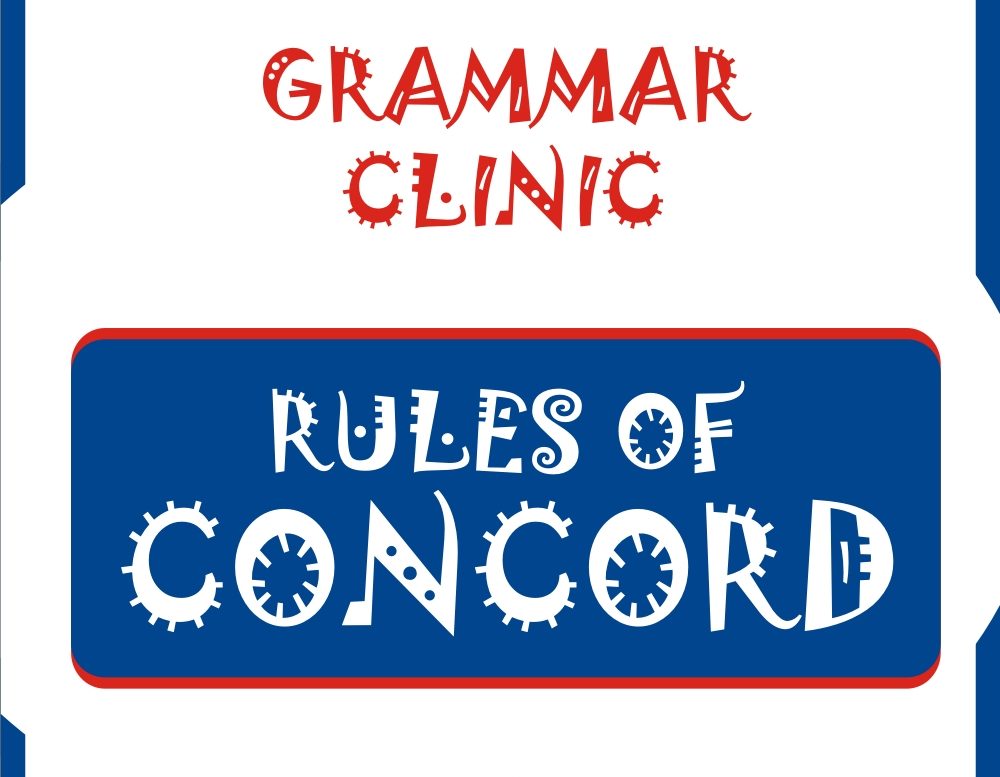Back to: ENGLISH LANGUAGE SS2
Welcome to class!
In today’s class, we will be talking about argumentative essay and rules of concord. Enjoy the class!
Argumentative Essay and Rules of Concord

ARGUMENTATIVE ESSAY
Remember, some weeks ago, I told you I would tell you more about argumentative essay.
Well, here is it!
What is Argumentative Writing?
Argumentative writing is a form of continues writing in which you are required to argue on or express your opinions about certain points, view or facts in order to win an imaginary opponent over. Thus, the basis of argumentative writing is to argue.
Most students do not see the difference between argumentative essay and debate. This is so because the two are involved with argument. However, while an argumentative essay is essentially written and the audience is invoked. A Debate is spoken and the audience is real.
There are two types of argumentative essay: the open and the close argumentative essays.
An open argumentative essay is regarded as an objective argument. It has to do with the writer’s presentation of a balanced argument on the issue under discussion without taking sides.
In a close argumentative essay, the writer takes a side of the proposition and strives to win the imaginary opponent to his side.
Following are some general lines of approach to writing an argumentative essay.
An argumentative essay requires the writer to be conversant with all the perspectives of the topic so that he or she would be able to take the reader around it. Understanding the topic puts you in better stead.
A good argumentative essay must be logical in form. Whether it is an open or a close argumentative essay, it must employ persuasive and emotive language in order to convince or influences other people. Also, a sound control of language that is capable of evoking strong emotions in the mind of the reader is an essential ingredient of an argumentative essay.
Furthermore, your points are the weapons with which you will launch an attack to your opponent, especially when you arrange them in order of importance. Your weapon of persuasion is the various strategies you employ to hold the audience spellbound.
Finally, your conclusion refers to the summary of your points in the argument. Endeavour not to repeat them, instead recapitulate by summarizing them briefly.
Evaluation
Write an essay to support the dissolution of mixed secondary schools in Nigeria.

THE RULES OF CONCORD
Concord simply means agreement or harmony. It is the term used in grammar to depict the agreement between the subject and verb in a sentence.
This is the main aspect of grammar and usage that could easily betray the poor and careless use of the English language.
However, before we continue, let’s have a quick recall of what a subject and a verb mean.
The subject of a sentence is the person who carries out the action of the sentence. The basic elements that can occupy this position in a sentence are nouns and pronouns. It could be singular or plural.
The verb of the sentence, however, has to do with the action carried out by the subject of the sentence. In some cases, the verb does not necessarily have to carry out an action. Those verbs are referred to as linking verbs. Linking verbs are used to connect the subject of the sentence to the complement. Examples are (look, stay, appear and seem). Remember we treated this in our lesson on parts of speech?
Rules of Concord
The basic rules of Concord are that a singular subject requires a singular verb and a plural subject requires a plural verb. Consider the following examples:
- Emeka has a house
- Emeka and Johnson have a chamber
- These are my books
- Everyone is happy
From the examples above, you would see that when the subject is singular, the verb that goes with it is a singular verb (Emeka + has and Everyone + is) but when the subject of the sentence is plural, the verb takes a plural verb (Emeka and Johnson + have and these + are)
Note that when you place an auxiliary verb before the lexical verb, the verb form does not have to change. For instance:
- The sun will set soon.
- John will prepare for his forthcoming exams.
Some Notes on Concord
- When indefinite pronouns (someone, anyone, nobody, etc) as the subject of a sentence it attracts a singular verb. For instance:
- Everyone has done his or her assignment.
- None of the teachers is here.
- Each of my students is to be grant access to the language lab.
- When two nominal groups are joined together by a linking verb, the verb agrees with the subject:
- My favourite food is beans.
- Motivational books are my best books.
- The pronouns neither and either take singular verb but when conjoined with (and, or, nor) the closest subject determines the verb:
- Neither of the two traffic light is working.
- Either of the shirts is my choice.
- Either Juliet or you are going.
- Neither they nor I am wrong.
Evaluation
- Complete the following with the right verb.
- Sally (run, runs) to the park every day.
- The dogs (bark, barks) at strangers.
- Ted and Mary (is, are) going to the movies.
- The game (was, were) exciting.
- They (worry, worries) too much.
- She (study, studies) every night.
- Black or white (is, are) your choice.
- That (was, were) incredible.
- Those (is, are) pretty shoes.
- The cat or dog (is, are) in the yard
- Put a ‘C’ if the sentence is correct and ‘X’ if it is not.
- ___ They have been waiting a long time.
- ___ The pen or the pencil are lost.
- ___ Someone don’t understand.
- ___ Those has been cheaper in the past.
- ___ Randy and Juan like sports.
- ___ These are really special.
- ___ You rides with me.
- ___ All of them goes to school.
- ___ Tony likes Mary.
- ___ That movie was awesome.
In our next class, we will be talking about Words Associated with Publishing and Printing. We hope you enjoyed the class.
Should you have any further question, feel free to ask in the comment section below and trust us to respond as soon as possible.

Thanks
get out
can you please write an argumentative essay to support the breakup of mix secondary school in Nigeria
sorry mistake thanks